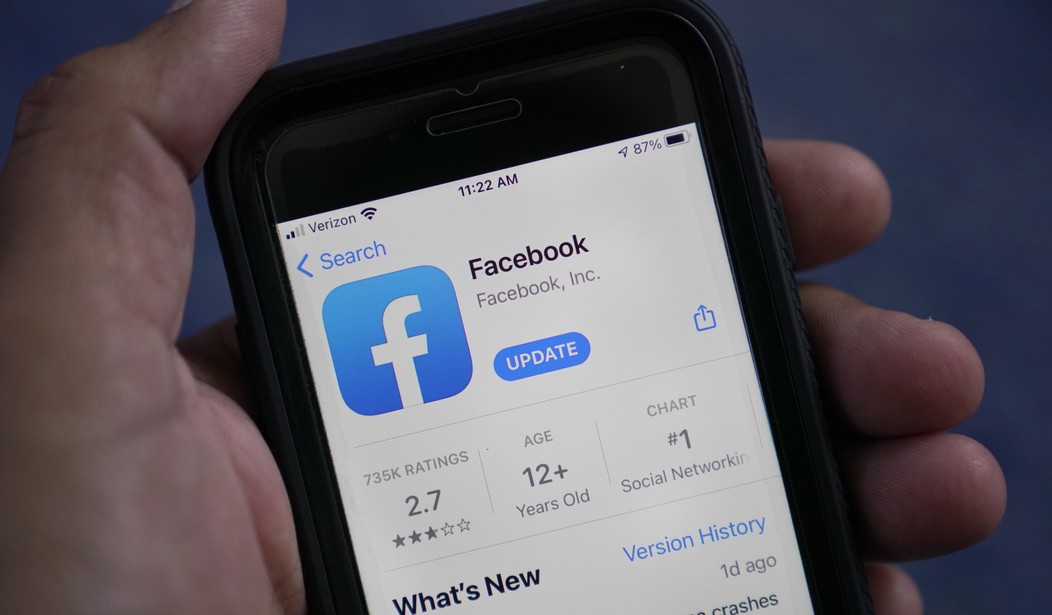“Doesn’t comply” with what? Five for Fighting recording artist John Ondrasik wanted to boost the visibility for his new single, “Blood on My Hands,” his protest song about Joe Biden and the disgraceful bug-out from Afghanistan that left thousands of Americans in Taliban hands.”There’s blood on these hands/ And still Americans…/ Left to the Taliban…/ Now how’s that happening?” Ondrasik sings in his new single, following what he describes as the “great tradition of artists speaking their minds and calling out their leaders for answers.”
When Ondrasik attempted to boost the song by purchasing advertising for it on Facebook, however, he discovered another tradition — the quashing of dissent on social media:
Update: As a professional musician, I tried to boost the reach of my new song "Blood On My Hands" via a promoted Facebook post.
Facebook rejected it, twice, offering only a link suggesting it violated their policy on either politics or social issues. 🤷♂️ pic.twitter.com/BXFGvmfYx0— John Ondrasik (@johnondrasik) September 14, 2021
Why in the world would Facebook refuse Ondrasik’s money to advertise the song? It’s clearly his to promote, it’s art, and furthermore it’s Ondrasik’s opinion.
What Facebook advertising policies did Ondrasik violate? Frankly, they’re so vague as to justify killing any advertising on any basis, but I suspect that they will rely on the prohibition on “controversial content.” Their policy states that “Ads must not contain content that exploits crises or controversial political or social issues for commercial purposes,” emphasis mine. What exactly does “exploits” mean in this context? Or for that matter, what does “commercial” mean as a restriction on advertising?
If that’s what tripped up Ondrasik’s ad, then Facebook wouldn’t have allowed Crosby, Stills, Nash, & Young to advertise “Ohio,” their protest song about the Kent State shootings. Ditto for any other song that protests, well, anything. Do they routinely check for social commentary on songs that do clear their advertising bar?
The FAQ directs inquiries to their business center, which doesn’t declare social and/or political ads off limits. It does demand some transparency for their sponsors. however:
We’re constantly working to increase ad transparency and election integrity on Facebook and Instagram. Therefore, we’ve established measures to promote authenticity and legitimacy for anyone wishing to run ads about social issues, elections or politics.
Ads about social issues, elections or politics are:
Advertisers interested in placing these ads should complete the ad authorization process. The process is available for advertisers that reside and are located in the targeted country at the time they run ads. Documents for authorization must be issued by an advertiser’s local country or state and can’t be expired. In selected countries, a notarized form is also accepted.
This relates to paid political advertising by organizations and candidates, though, not artists who want to promote their work. The same is true for the more focused requirements for United States advertisers. The context for the restrictions are explicitly aimed at “any person creating, modifying, publishing or pausing ads that reference political figures, political parties or elections (including “get out the vote” campaigns).” There aren’t any such restrictions listed on artists or anyone else who speak for themselves. At least not until now.
Just how even-handedly does Facebook apply this proscription against political advertising or exploitation of controversies? It takes a little work, but one can research the ads Facebook allows by researching various organization pages. Here, for example, are a few ads that Facebook green-lit for Black Lives Matter earlier this year:

Add to that a few from Demand Justice, the neosocialist group best known for promoting Alexandria Ocasio-Cortez. These ads just launched this month, in fact:

Click both links to see a complete list of controversies and political positions advertised by these groups on Facebook. To be clear, I firmly support access to advertising and speech for these groups as well. There is nothing at all illegitimate about their advertising purchases, even if I disagree with their opinions. But it’s very difficult to explain why BLM and Demand Justice can buy advertising explicitly calling out controversies and political positions as activists within the political system, while John Ondrasik can’t buy an ad for his new single because it expresses his political opinion about Afghanistan.
Here’s the song once again from John, and we’ll just let word of mouth work its magic. John will join me on my show Thursday to talk all about this and more, so be sure to join us at 4 pm ET.








Join the conversation as a VIP Member